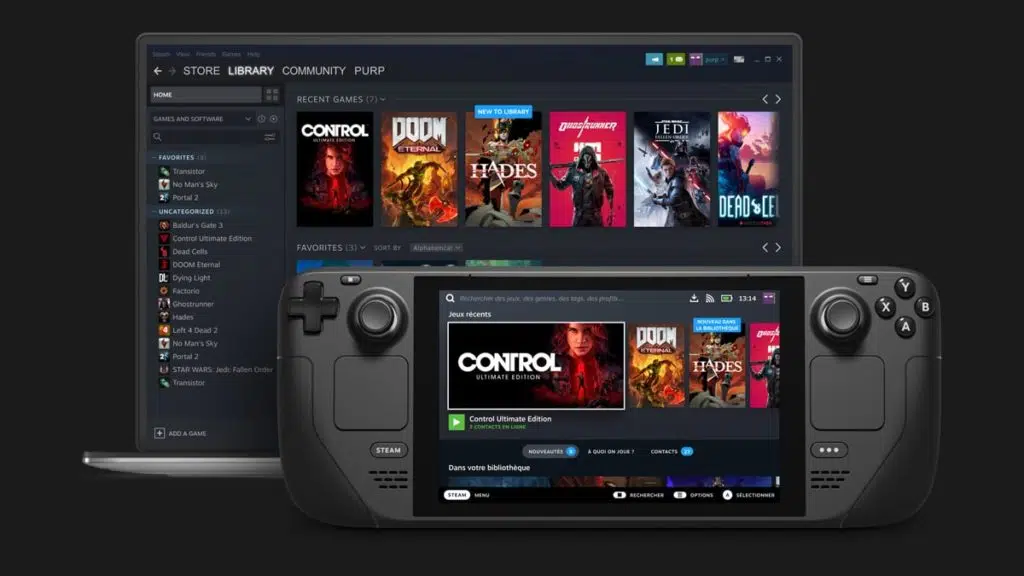
Valve has promised that the Steam Deck’s 40 WHr battery can provide anywhere from two to eight hours of gameplay, but initial reviews of the portable PC have revealed that the system can run out of juice at a quicker rate unless users dial down their game settings considerably. They include those from GamersNexus and The Phawx, both of whom found that the Steam Deck’s battery can be drained in 90 minutes or less unless gamers enable settings such as framerate caps and Vsync, both of which can extend the playtime of the system so it better meets the lower limits promised by Valve. The Phawx noted that he was never able to get the Steam Deck to last eight hours, however.
The Steam Deck can drain its battery in 90 minutes if you don’t cap your fps (PC Gamer)
- GamersNexus ran a range of battery tests, including Devil May Cry 5 with an uncapped framerate and Vsync disabled. With those settings the Steam Deck lasted 87 minutes—and that was with brightness set to 50%.
- For comparison, DMC 5 lasted a full two hours with Vsync enabled, slightly lower settings, and a 60 fps framerate cap.
- YouTuber The Phawx also ran intensive battery life tests to determine the worst case performance with the Steam Deck, and came to a very similar number using the game Control: 85-90 minutes.
On the more positive side, initial reviews of the Steam Deck have also revealed that the handheld’s micro SD card load times can be nearly as fast as the SSD. That makes the cheapest version of the handheld, which costs $399 but only comes with 64 GB of eMMC internal storage, much more interesting.
First tests show Steam Deck SD card speed rivals the SSD (PC Gamer)
- Linus Tech Tips and The Phawx both tested load times on the Steam Deck and found that micro SD load times were almost identical to the SSD in games like Control, Dead Cells, and Street Fighter 5.
- In some cases the micro SD load was a mere 2 seconds behind, while in others there was no measurable difference: it was just as fast.
- Portal 2 and Ghostrunner lagged behind on the micro SD by about 10 to 17 seconds, though, so real-world results could vary a lot depending on which games play well Proton and the Steam Deck’s hardware.
